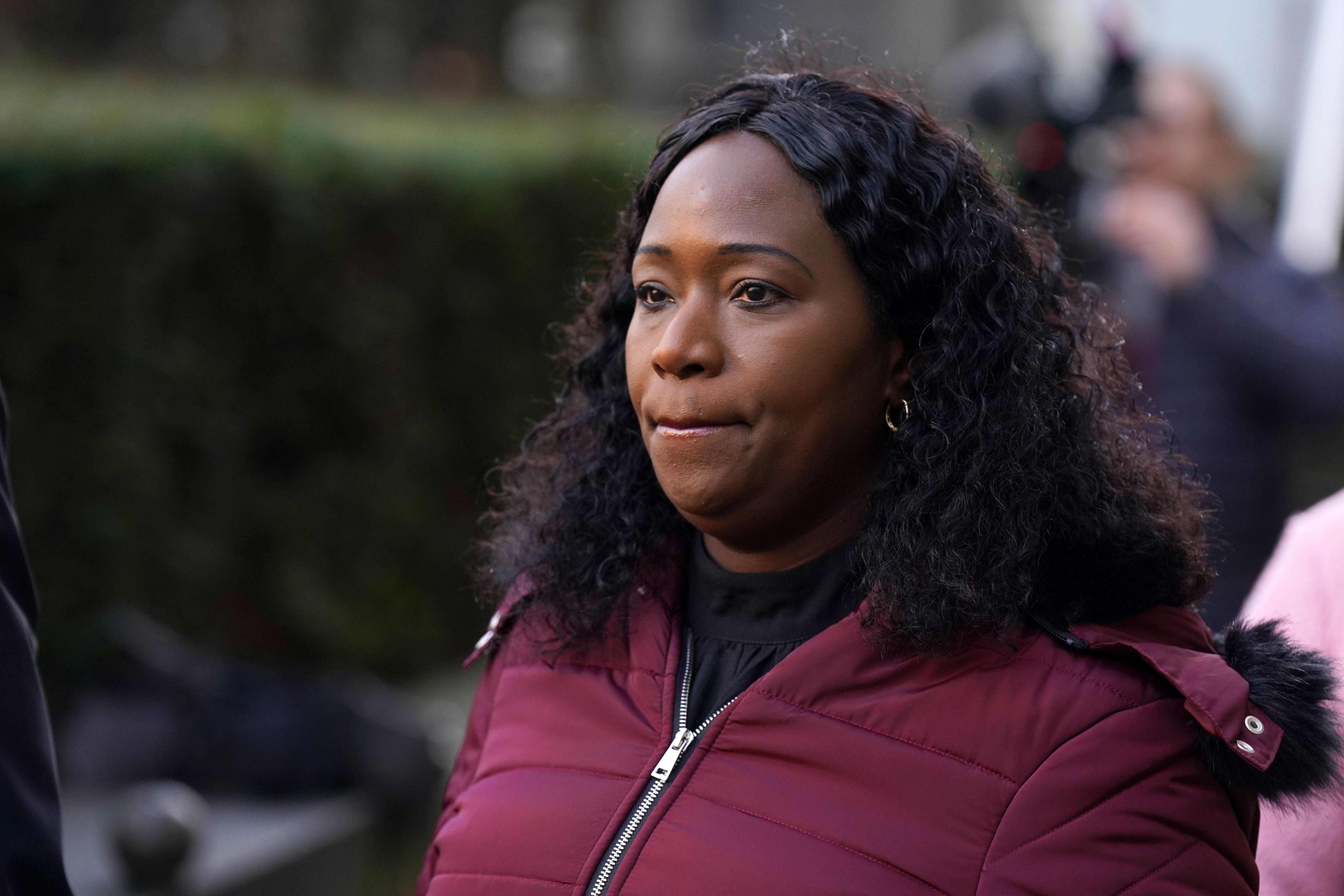Sheku Bayoh sister: Family would have been treated differently if we were white
The sister of Sheku Bayoh, who died after being restrained by police in Kirkcaldy, is giving evidence at an inquiry into his death.

Your support helps us to tell the story
From reproductive rights to climate change to Big Tech, The Independent is on the ground when the story is developing. Whether it's investigating the financials of Elon Musk's pro-Trump PAC or producing our latest documentary, 'The A Word', which shines a light on the American women fighting for reproductive rights, we know how important it is to parse out the facts from the messaging.
At such a critical moment in US history, we need reporters on the ground. Your donation allows us to keep sending journalists to speak to both sides of the story.
The Independent is trusted by Americans across the entire political spectrum. And unlike many other quality news outlets, we choose not to lock Americans out of our reporting and analysis with paywalls. We believe quality journalism should be available to everyone, paid for by those who can afford it.
Your support makes all the difference.The sister of a man who died after being restrained in police custody has told an inquiry she believes the family would have been treated differently if they were white.
Kadi Johnson said that she and her family felt “suspicious” after being given different versions of how her brother, Sheku Bayoh, lost his life.
Mr Bayoh, 31, died after he was restrained on the ground by six police officers in Kirkcaldy in May 2015, and the inquiry is investigating the circumstances of his death and whether race was a factor.
Kadi Johnson said when two police officers came to give her the news on the afternoon of May 3, they initially said her brother was found lying on the road and died on the way to hospital, but later returned and told her he had died following a “forceful arrest”.
She told the inquiry the family were “shocked” and upset when a third officer came to tell them that her brother, a father of two, had been seen carrying a blade and refusing to obey officers’ commands.
Ms Johnson said the officer told them that her brother had punched a police woman, other officers had got him on the ground and used spray, and he later died in hospital.
Angela Grahame KC, lead counsel to the inquiry, asked how Ms Johnson felt to be given changing information.
She replied: “We started to feel suspicious. We started to feel are we really getting the full facts, are these true, is it the true story we are getting, is it made up or not? How can you come and tell me you have lost a loved one and you don’t know how to tell me how he died?”
Ms Grahame referred to a statement Ms Johnson gave to the inquiry in which she said “I don’t know if it’s because we are black people”.
She asked Ms Johnson, a staff nurse, why she said that and whether she thinks they would have been treated differently had they been a white family living in Kirkcaldy.
The witness replied: “That’s my belief because why can they think they can just come to a family and tell us anything and expect us to go along with that?
“My belief is if were were white we would have been treated differently.”
She also said she was immediately concerned when, on their second visit to her home on May 3, officers said that Sheku had been involved in a “forceful arrest” and became unconscious and died.
Asked whether the term forceful had definitely been used, she said: “I remember that very clearly because when they mentioned the word forceful I remember speaking to the officer who had the nursing background saying, forceful arrest that means Sheku must have been manhandled and during that time they might have obstructed his airways, something like that.”
She added: “There has been a few deaths in America that had happened during encounters with black people and the police and they had died as well so our attention was, was that the same way Sheku was handled?”
Ahead of Ms Johnson’s appearance, her family held a vigil outside the inquiry venue, Capital House in Edinburgh.
Trainee gas engineer Mr Bayoh was born in Sierra Leone and moved to the UK when he was 12. He moved to Scotland after living in London for five years.
The latest round of hearings will focus on Police Scotland’s post-incident management after initial contact with Mr Bayoh.
The inquiry, before Lord Bracadale, continues.